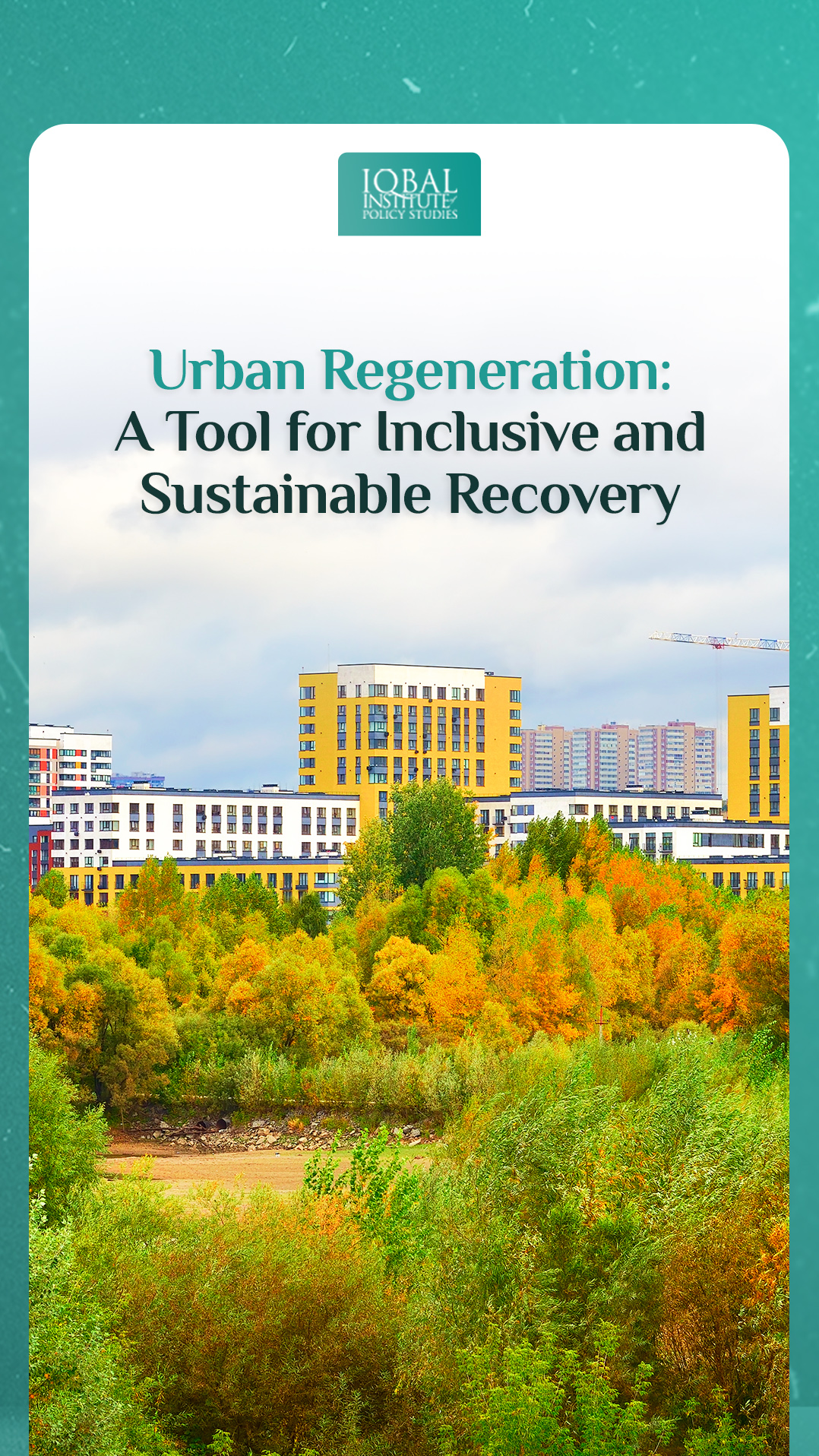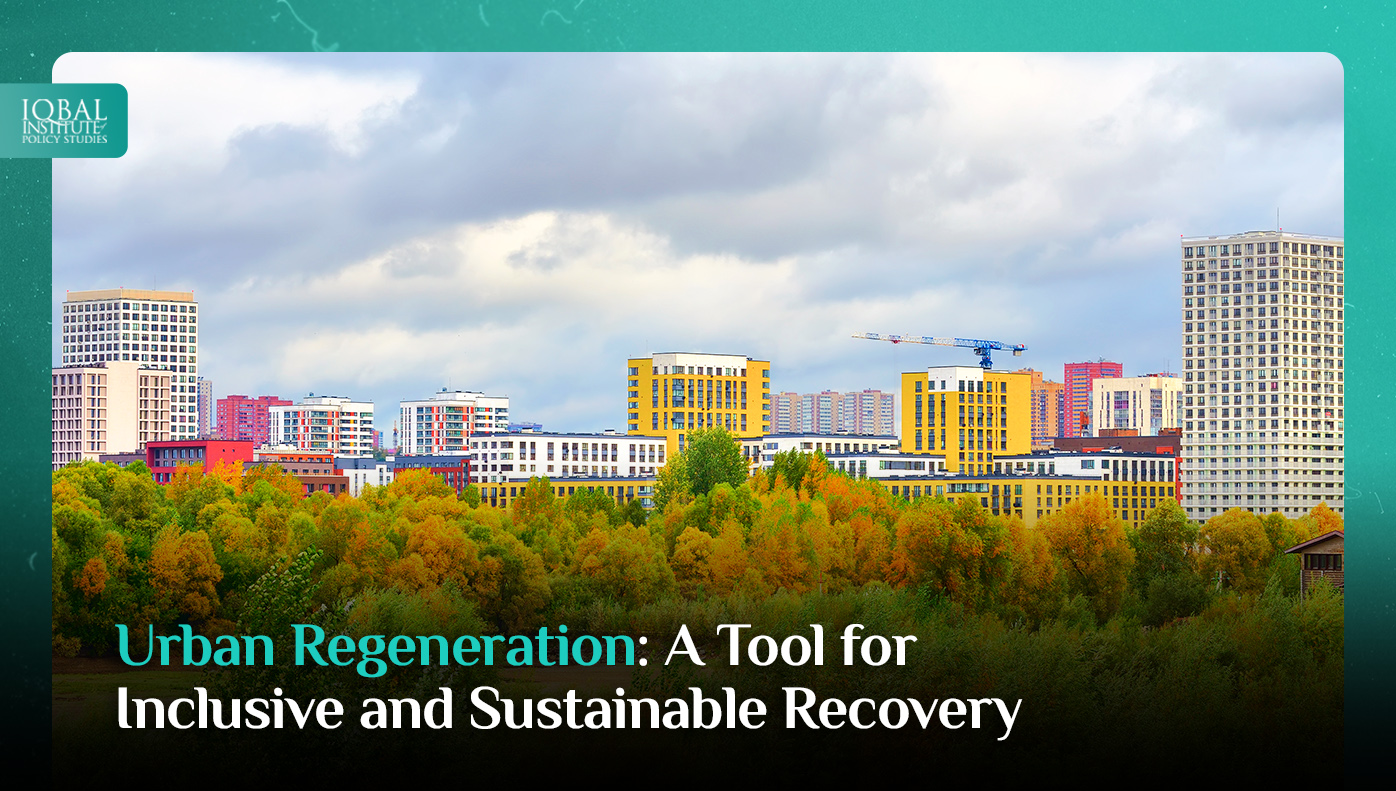Urban Regeneration acts as a tool for integrative processes and essential city planning. It helps introduce new trends for radical climate change, urban health, accelerated digital transformation, shifting notions and products of culture, and increasing spatial inequality. Inclusive and sustainable urban regeneration promotes a shift in the paradigm of urban life. It focuses on social, economic, physical, and environmental aspects and sets Environmental Social Governance (ESG) at the core of policies and operations. Urban Regeneration must be built on qualitative, reliable, comparable data and evidence.
Currently, Pakistani cities face several challenges, including rapid urbanisation, the increasing number of vehicles contributing to air pollution, the low number of housing units due to increasing population, unplanned construction activities and many more. To overcome these challenges, cities need the regeneration of unplanned settlements through appropriate land use reforms to improve residents’ quality of life and accommodate more migrants to the cities. In this regard, real estate development companies can play an important role in working for urban regeneration to promote inclusive and sustainable growth in cities.
Such development groups can collaborate with government institutions to develop policy and governance frameworks highlighting current challenges and opportunities to facilitate positive regeneration processes. For example, IMARAT Group, one of Pakistan’s leading real estate groups, has agreed to establish a desk for urban regeneration under a public-private partnership with the Islamabad Chambers of Commerce & Industry (ICCI). Under this public-private partnership, both sides will work to develop new housing schemes (both low-cost and affordable) to meet the housing needs of the increasing population. Furthermore, such bylaws will be framed, which can promote planned developments, including vertical expansions and high-rise buildings in different cities of Pakistan to use the undeveloped and unplanned land efficiently. Conclusively, urban regeneration is one of the most comprehensive and effective tools governments can adopt to promote more inclusive, resilient, safer, and sustainable cities.



Leave a Reply